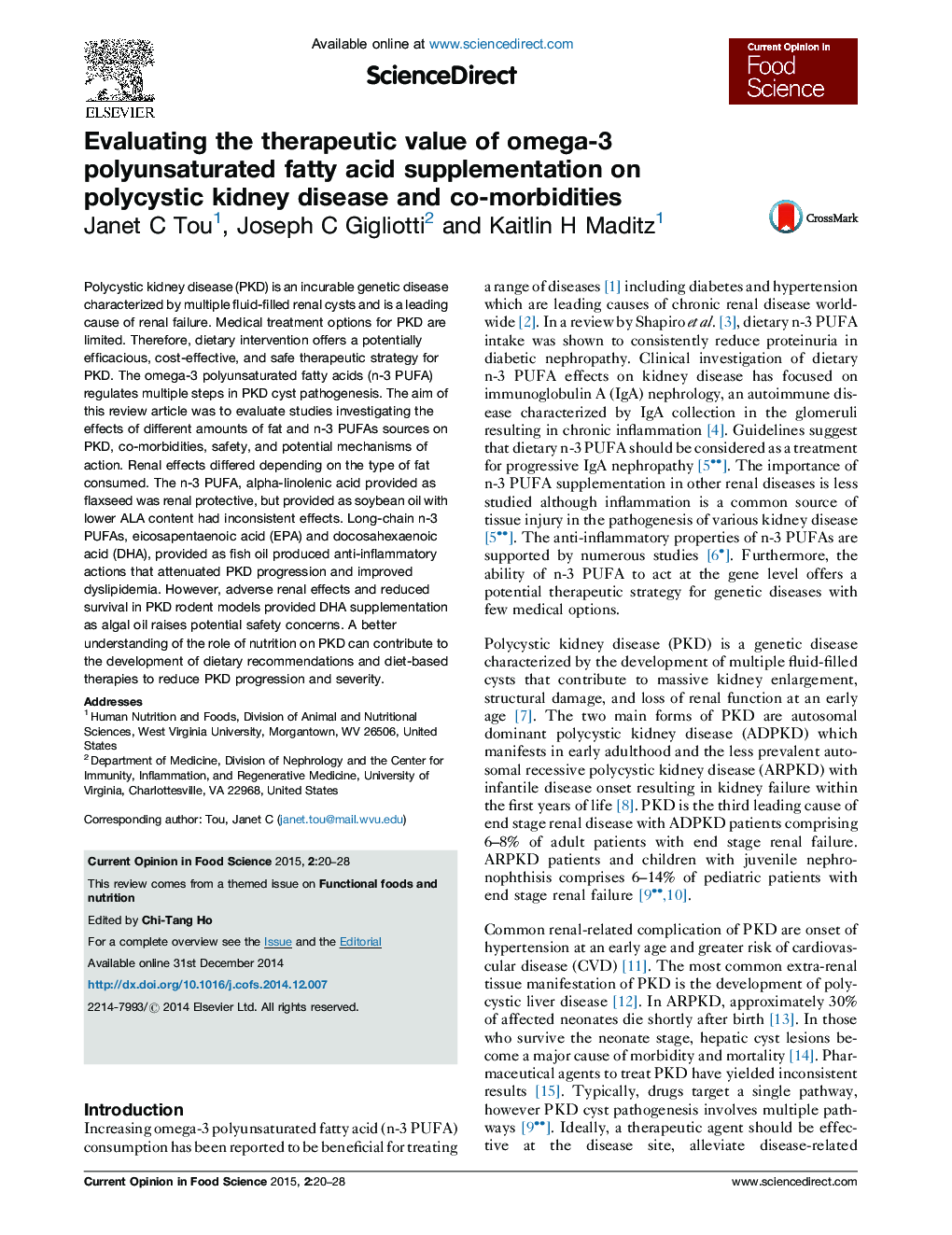| کد مقاله | کد نشریه | سال انتشار | مقاله انگلیسی | نسخه تمام متن |
|---|---|---|---|---|
| 2079781 | 1545103 | 2015 | 9 صفحه PDF | دانلود رایگان |
• Effects on polycystic kidney disease depends on the type of dietary n-3 PUFAs.
• ALA-rich flaxseed attenuated polycystic kidney disease progression.
• Soybean oil consisting of both ALA and LNA resulted in inconsistent renal effects.
• Anti-inflammatory EPA/DHA-rich fish oil attenuated polycystic kidney disease.
• Adverse renal effects due to DHA provided as algal oil raised safety concerns.
Polycystic kidney disease (PKD) is an incurable genetic disease characterized by multiple fluid-filled renal cysts and is a leading cause of renal failure. Medical treatment options for PKD are limited. Therefore, dietary intervention offers a potentially efficacious, cost-effective, and safe therapeutic strategy for PKD. The omega-3 polyunsaturated fatty acids (n-3 PUFA) regulates multiple steps in PKD cyst pathogenesis. The aim of this review article was to evaluate studies investigating the effects of different amounts of fat and n-3 PUFAs sources on PKD, co-morbidities, safety, and potential mechanisms of action. Renal effects differed depending on the type of fat consumed. The n-3 PUFA, alpha-linolenic acid provided as flaxseed was renal protective, but provided as soybean oil with lower ALA content had inconsistent effects. Long-chain n-3 PUFAs, eicosapentaenoic acid (EPA) and docosahexaenoic acid (DHA), provided as fish oil produced anti-inflammatory actions that attenuated PKD progression and improved dyslipidemia. However, adverse renal effects and reduced survival in PKD rodent models provided DHA supplementation as algal oil raises potential safety concerns. A better understanding of the role of nutrition on PKD can contribute to the development of dietary recommendations and diet-based therapies to reduce PKD progression and severity.
Figure optionsDownload as PowerPoint slide
Journal: Current Opinion in Food Science - Volume 2, April 2015, Pages 20–28
